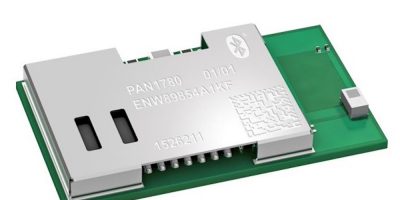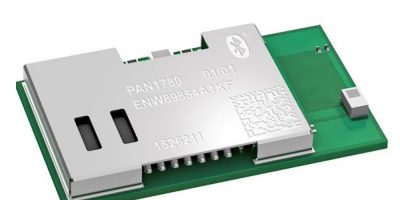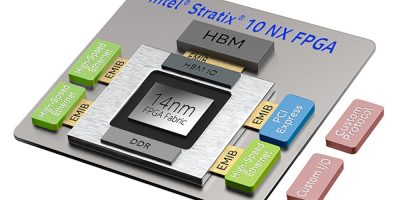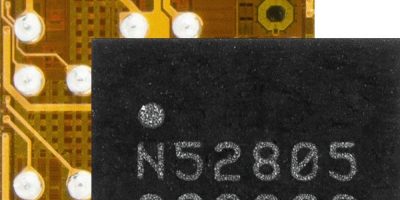Distributor, Mouser Electronics, is now stocking the PAN1780 module from Panasonic. The low power Bluetooth Low Energy 5.0 module is a compact modules for IoT, beacon and mesh network applications.
The Panasonic PAN1780 module is based on the Nordic nRF52840 single chip controller, which provides an Arm Cortex-M4F processor core with 1Mbyte of embedded flash memory and 256kbytes of internal RAM. It can be used in standalone mode, which eliminates the need for an external processor, as well as reducing cost and board space requirements. The module also features an Arm TrustZone CryptoCell 310 security core that supports a secure boot process for edge computing applications.
The PAN1780 module has a high symbol rate of 2Mbits per second using Bluetooth 5.0’s high-speed LE 2M PHY or a significantly longer range using the LE coded PHY at either 500kbits per second or 125kbits per second. Output power is up to +8dBm. The nRF52840 SoC is sensitive, achieving -103dBm at 125kbits per second, which, together with the LE coded PHY are designed for long-range communication. The Bluetooth Low Energy with qualified Bluetooth mesh profile stack allows the module to support 802.15.4 (Thread and Zigbee) and NFC-A.
The module is compact, measuring 15.6 x 8.7 2.0mm (the same form factor as PAN1026A and PAN1762 modules but with smaller pitch and more pins). The PAN1780 module can be used for smart city infrastructure, industrial mesh networks, industry 4.0 robotics and smart medical applications.
Mouser Electronics claims to stock the world’s widest selection of the latest semiconductors and electronic components for the newest design projects. Its website is continually updated and offers advanced search methods to help customers quickly locate inventory. It also houses data sheets, supplier-specific reference designs, application notes, technical design information, and engineering tools.
Panasonic Industrial Devices is the industrial components and electronic devices division of Panasonic North America, the principal North American subsidiary of Panasonic. Standard and custom components range from industrial automation devices to passive components, relays, connectors, sensors, wireless connectivity and semiconductors.







